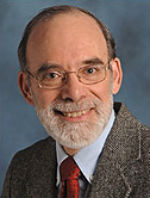
Paul S. Appelbaum, M.D., the Elizabeth K. Dollard Professor of Psychiatry, Medicine and Law, and Director, Division of Law, Ethics and Psychiatry at Columbia was previously A.F. Zeleznik Distinguished Professor and Chairman, Department of Psychiatry; and Director, Law and Psychiatry Program, University of Massachusetts Medical School. He is currently Chair of APA's Committee on Judicial Action and a member of the Standing [ ... ]
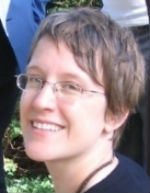
My main theoretical interests lie in semiotic archaeology, and archaeologies of death and the body. I work in historical archaeology and the archaeology of the contemporary past, focusing particularly on nodes of controversy where conflicting sets of beliefs and practices converge. In particular, I am interested in the ways in which negotiations and conflict between actors are mediated through material conditions. To full [ ... ]
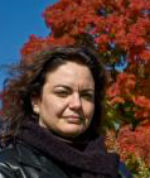
Clara Irazábal, Ph.D., is Assistant Professor of Urban Planning in the Graduate School of Architecture, Planning and Preservation at Columbia University, New York. She received a Ph.D. in Architecture from the University of California at Berkeley, and has two Masters in Architecture and Urban Design and Planning from the University of California at Berkeley and the Universidad Central de Venezuela, respectively. Ir [ ... ]
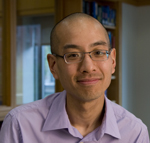
Dr. Wu is an Associate Director of the CUSSW Social Intervention Group and the Co-Director of the HIV Intervention Science Training Program for Racial/Ethnic Minority New Investigators. His practice experience includes direct clinical practice with individuals, couples, and groups with agencies serving primarily the lesbian, gay, bisexual, and transgender communities; evaluation of violence prevention programs for pe [ ... ]
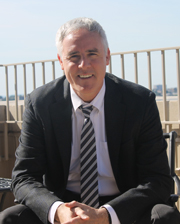
Dr. Peter T. Coleman holds a Ph.D. in Social-Organizational Psychology from Columbia University. He is Professor of Psychology and Education at Columbia University where he holds a joint-appointment at Teachers College and The Earth Institute and teaches courses in Conflict Resolution, Social Psychology, and Social Science Research. Dr. Coleman is Director of the Morton Deutsch International Center for Cooperation an [ ... ]

Professor Ames's research focuses on social judgment and behavior. He examines how people form impressions of individuals and groups as well as the consequences of these impressions on prosocial behaviors (e.g., trust, cooperation, helping), competitive interaction (e.g., conflict, exploitation, aggression), and justice judgments (e.g., praise, blame, punishment). A central aspect of this work is how people "read min [ ... ]
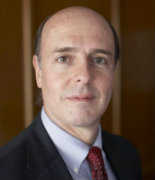
Professor Bontempo studies international comparative management, including international negotiations and cultural differences in decision making. His current research involves cultural factors in international negotiations and international differences in risk perception. The winner of the 1994 Singhvi Prize for Scholarship in the Classroom, Bontempo teaches the core course Leadership and the elective Managerial Negotiat [ ... ]
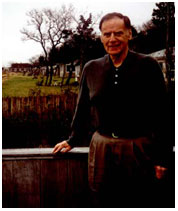
Professor Deutsch, an eminent social psychologist, has been widely honored for his scientific contributions involving research on cooperation and competition, social justice, group dynamics, and conflict resolution. He has published extensively and is well known for his pioneering studies in intergroup relations, social conformity, and the social psychology of justice. His books include: Interracial Housing Theories [ ... ]
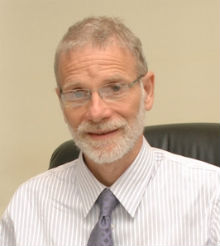
Dr. Larry S. Liebovitch is Professor of Physics and Psychology at Queens College of the City University of New York, and serves as Adjunct Senior Research Scientist for AC4. Dr. Liebovitch earned a bachelor’s degree in physics from the City College of New York and a doctorate in astronomy from Harvard University. He was a Postdoctoral Fellow at the Mt. Sinai School of Medicine in New York and an Assistant Professo [ ... ]

Philippe Vandenbroeck co-founded the Belgium-based futures consultancy shiftN, a network of professionals that works with leading organizations using systems thinking, multi-stakeholder dialogue, and design to better understand complex systems. With a background in bio-engineering, philosophy, and urban planning, for the last 20 years he has used systems thinking approaches to study complex business and societal issues su [ ... ]

Katharina Kugler, Ph.D. is a researcher in psychology at the University of Munich, Germany. Currently she holds a Fellowship in Complexity and Conflict from the ICCCR to study at Teachers College and to work as a Research Assistant for Professor Coleman at the ICCCR. Katharina Kugler received her “Diplom” (combined B.A. and M.A.) in Psychology at the University of Munich, Germany. During her graduate studies s [ ... ]
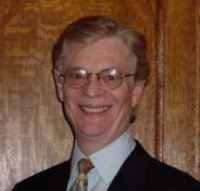
Professor Higgins, the Stanley Schachter Professor of Psychology, works at the intersection of motivation and cognition. He is an expert on motivational models of performance, judgment and decision making. His most recent research addresses the general question, "Where does value come from?", and the more specific question, "What makes a decision good?" He teaches an Executive MBA course on negotiation [ ... ]
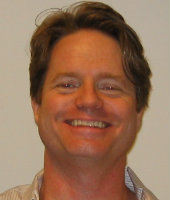
Michael Morris is the Chavkin-Chang Professor of Leadership in the Management Division of Columbia Business School, and a Professor in the Psychology Department of Columbia University. He teaches MBA and executive-level classes on negotiation, decision making and group dynamics. He designed and runs Columbia’s Program on Social Intelligence, which translates emerging research insights into new forms of leadership [ ... ]
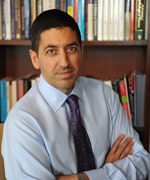
Sandro Galea, MD, MPH, DrPH, is a physician and an epidemiologist. Dr. Galea is interested in the social production of health of urban populations. His work explores innovative cells-to-society approaches to population health questions. His primary focus is on the causes of brain disorders, particularly common mood-anxiety disorders and substance abuse. He has long had a particular interest in the consequences of mass tra [ ... ]
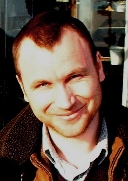
Macartan Humphreys (Ph.D., Harvard, 2003) works on the political economy of development and formal political theory. Ongoing research focuses on civil wars, post-conflict development, ethnic politics, natural resource management, political authority and leadership, and democratic development. He uses a variety of methods including survey work, lab experimentation, field experimentation, econometric analysis, game theoreti [ ... ]
.jpg)
My research interests, to date, have focused on regional seismology -- a broad field where one typically analyzes seismic signals recorded at a few tens of kilometers to a couple thousand kilometers to infer geologic structure of the Earth's upper layers, including the crust, to quantify the seismic sources and their implications on regional tectonics, and to characterize the nature of the seismic sources. The results of [ ... ]
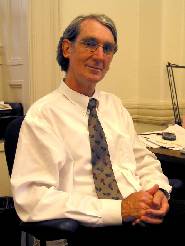
The face of the Earth is figured by continents and oceans whose present shape and positions are transients in the history of the planet. Earth is a dynamic engine of change. It is capable of tearing itself apart and has done so repeatedly throughout its history. The outer layers of the Earth are the solid thermal boundary layer of deep convective motions in the mantle and are primarily responsive to the deeper forces. Jus [ ... ]
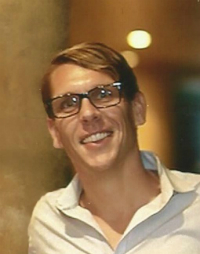
Josh Fisher received his PhD in Conflict Analysis and Resolution from George Mason University, where he studied the ecological drivers of armed conflict. His work coupled geospatial statistics, remote sensing, and econometric modeling to develop spatially explicit forecast models of the likelihood of armed conflict. He received his MS from Utah State University in Political Science and his BS in International Law and Envi [ ... ]
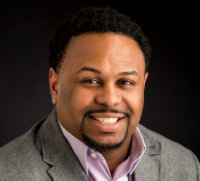
Dr. Desmond Upton Patton is an assistant professor at the Columbia School of Social Work and a Faculty Affiliate of the Social Intervention Group (SIG) and the Data Science Institute. His research utilizes qualitative and computational data collection methods to examine how and why youth and gang violence, trauma, grief and identity are expressed on social media and the real world impact they have on well-being for [ ... ]
.jpg)
Professor Weber works at the intersection of psychology and economics. She is an expert on behavioral models of judgment and decision making under risk and uncertainty. Recently she has been investigating psychologically appropriate ways to measure and model individual and cultural differences in risk taking, specifically in risky financial situations and environmental decision making and policy. Weber is past pre [ ... ]

Dr. Westaby is an Associate Professor in the Program in Social-Organizational Psychology, Teachers College, Columbia University. He received his BA in Psychology from the University of Wisconsin–Madison and his PhD in Social and Organizational Psychology from the University of Illinois at Urbana–Champaign. Professor Westaby was also a Postdoctoral Scholar at Penn State University's Center for Applied Behaviora [ ... ]
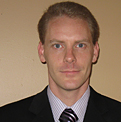
Mark Whitlock is a faculty advisor in Columbia University's Negotiation and Conflict Resolution master's program where he teaches "Networking and Sustainability" as a component of the Capstone Thesis seminars. He is concurrently an adjunct professor in New York University’s Global Affairs Program where he teaches courses on "Statebuilding and International Policy" and "Prevention of Mas [ ... ]

Larry Heuer, Ann Whitney Olin Professor of Psychology, joined the faculty of Barnard in 1990. He teaches courses such as "Psychology and Law," "Social Conflict" and "Statistics." He is affiliated with Barnard's Human Rights Studies Program. Professor Heuer's research centers on the psychology of procedural justice, and focuses specifically on questions about what leads people to think t [ ... ]
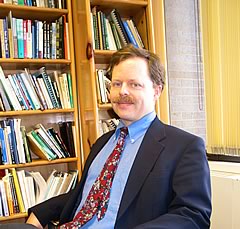
Marc Levy is deputy director of the Center for International Earth Science Information Network (CIESIN), a research and data center of the Earth Institute of Columbia University that utilizes scientific data and advanced information technology to advance understanding of how humans affect and manage the environment, and in turn, how environmental variability and change affect society. He also serves as an adjunct professo [ ... ]
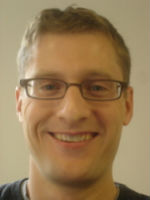
Daniel Corstange (Ph.D., Michigan, 2008) is currently at work on a book project that examines the institutional incentives that privilege coordination on ethnic political coalitions over "policy" coalitions, and the patronage dynamics that result from reliance on ethnic coalitions. Professor Corstange's interests in quantitative methods focus on response bias and eliciting truthful answers to sensitiv [ ... ]
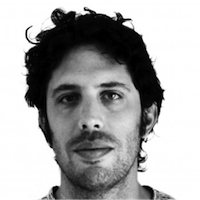
Santiago Ortiz is Head at Moebio Labs, a team of data scientists, data visualization developers, and designers who work on advanced interactive visualization projects of large data sets. He specializes in exploratory information visualization, knowledge maps, and visual data science - a fusion of machine learning and interaction. As a consultant, he has worked on projects to improve the communication strategy of organizat [ ... ]